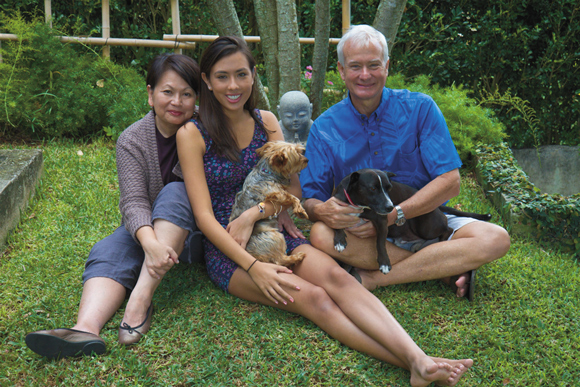
Kirk Caldwell
The First in a Series.
Photos courtesy Kirk Caldwell
Editor’s note: In 2022, Leadership for the State and Maui County will be at the forefront with elections for Governor, Maui Mayor, County Council, and due to reapportionment, all State Senators and State Representatives. The primary election will be held in on August 13, 2022 with the General Election on November 8, 2022, and it’s not too early to start thinking about the type of State and County leaders needed. While no one has officially declared their respective candidacies, several have expressed interest in the gubernatorial race: former Honolulu Mayor Kirk Caldwell, Business Executive / former First Lady Vicky Cayetano and current Lt. Governor Josh Green. They were simultaneously sent identical questions with the same response date.
This month’s Focus is on former Honolulu Mayor Kirk Caldwell, September’s Focus will be on Business Executive/ former First Lady Vicky Cayetano and October’s Focus will be on Lt. Governor Josh Green.

1. In 100 words or less, please tell us your background, including details about your family, education, and experience in the public, private, and non-profit sectors.
I was born in WaipahƉ, grew up in Hilo as the oldest of five, and have a wonderful wife and daughter. After working on the plantation as a kid, I graduated from Tufts and UH law school. I served as a state legislator, Honolulu’s Managing Director, and managing partner at a law firm. Serving as Honolulu Mayor during COVID-19 re-enforced a passion to make change for a better quality of life for Hawai‘i families and to preserve our local values, values I experienced with my former bosses—Senator Inouye and Chief Justice Richardson—and in the communities I grew up in.
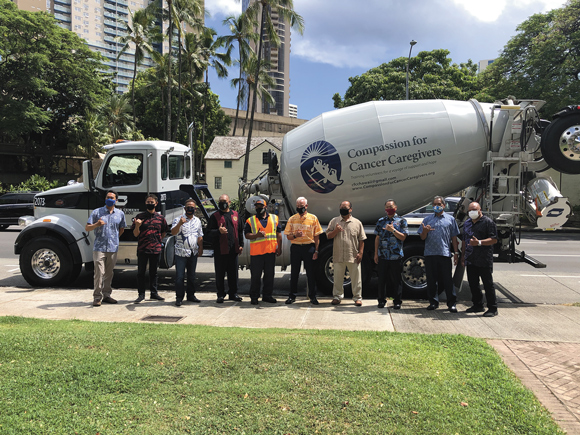
2. In 200 words or less, please tell us: a) What is your vision for Hawai‘i/Maui? b) What is right with Hawai‘i/Maui? c) What is wrong with Hawai‘i/ Maui?
We must not lose what makes Hawai‘i special—our people. My vision is a Hawai‘i that maintains our values while providing more opportunities for our local families, including access to education, jobs, and affordable housing. Working summers on the sugar plantation while growing up reinforced in me what is right with Hawai‘i. The work we put in on the sabidong gang made me realize that we all have more in common than separates us. We valued hard work, our families, and our community; we were able to get through a hard day’s work by laboring together. With economic and public health challenges ahead, I know the people of Maui and Hawai‘i are ready to work together to make change inspired by our values that put people first. We still see inequality in Hawai‘i, including racism faced by the Filipino community, a lack of affordable housing, and barriers to accessing education and good jobs. With tourism reopened on Maui, our visitor industry should bring back workers and provide pathways for advancement. I also think it is important that Maui College provide the tools our youth need, including expanding the nursing program and providing access to other health-related certifications and degrees.
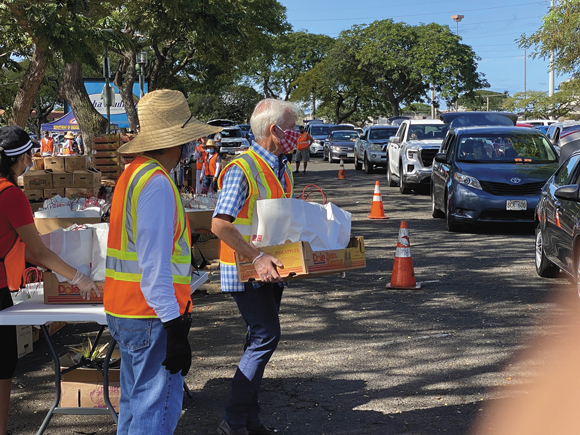
3. In 125 words or less, please describe your relationship with Hawai‘i’s/Maui’s Filipino community.
As a teenager, my father wanted me to do the hardest job on the plantation, and that was weed spraying with the sabidong gang. I worked on a team with Filipino Americans for multiple summers doing the toughest work of my life. We would eat lunch together, share stories, and I learned that each one shared their hard earned pay with their parents, families, and communities. That sense of responsibility to one another, compassion, and respect for others, where they came from, and what they dream of, are our shared values. As Mayor, I had the opportunity to work more with Honolulu’s Filipino community, travel to the Philippines, and see these values at play again. I look forward to developing an even stronger working relationship.
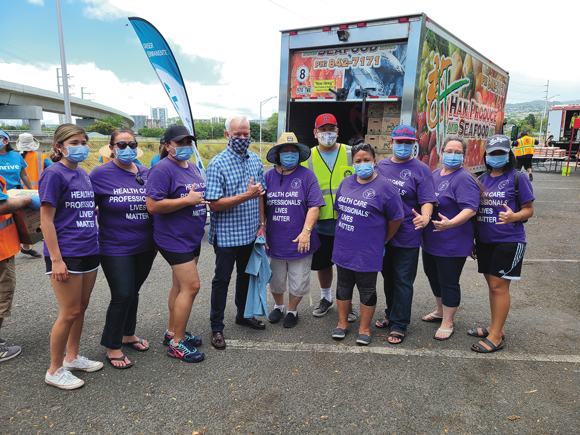
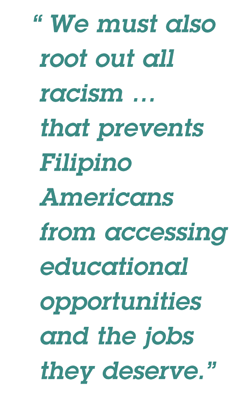
4. In 500 words or less, please identify and explain the three greatest needs of Hawai‘i’s/ Maui’s Filipino community.
As I talk-story with families across the state, many of us share the same concerns: how to get a good job and afford a home, how to give our kids a good education and future, and how to feel safe and welcome in our homes and communities. These concerns directly relate to economic security, providing a future for our keiki, and keeping our families safe. Tourism is picking up; however, many workers are not being called back to work, and positions are being eliminated. I have walked picket lines with Hawai‘i’s workers, and I will continue to support workers’ rights and fight to protect those jobs that our families rely on. I am also dedicated to increasing truly affordable housing. Too many of our local families are moving to the continent because they are being priced out. If we want to ensure a bright future for our keiki, we must ensure that they can afford to live in Hawai‘i. As Honolulu Mayor, we not only tried to incentivize the private development of units, but we directly built more than two thousand units for Hawai‘i families and made City lands available to build units our local families could afford. At both the island and state levels, we have to do much more. Building a brighter future for our keiki means ensuring that we have strong public schools, access to affordable college, and good jobs. As Governor, I would invest resources in Maui College and our UH system. Expanding the nursing program and providing opportunities for youth to pursue other health-related career paths, such as health technicians, would allow for Maui’s youth to access a quality education and job opportunities without having to leave the island. We must also root out all racism that allows structural inequality to exist, including racism that prevents Filipino Americans from accessing educational opportunities and the jobs they deserve. Keeping our families safe has taken on new meaning during the COVID-19 pandemic, and many Filipino community members care for Hawai‘i residents on the frontlines, including in our healthcare system and other essential services. With so many of our doctors, nurses, and other essential workers putting their lives on the line for us, as Governor I would work to make Hawai‘i safe for those frontline workers, safe for our local families, and safe for our small businesses. We had to make hard decisions when the pandemic began, but we did it to ensure the safety of our communities. Additionally, Filipino Americans experience disproportionately higher rates of certain underlying conditions, which places them at higher risk during the spread of COVID-19 variants. We must work to fill healthcare access gaps, increase Filipino American-specific data collection, and invest in increasing language access to serve all members of our community. I believe that relationships are the heart of Hawai‘i, and I look forward to continuing to listen, learn, and build relationships across our diverse communities.
